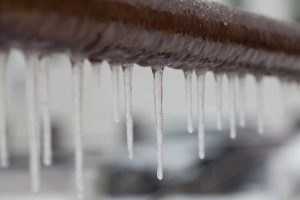 We still have about a month to go before our temperature lows dip below freezing, but as anyone who has lived here for even just a year knows, our weather is unpredictable. So if you’re thinking of waiting on any winter preparation this year for your home, we urge you to reconsider. Especially when it comes to your plumbing in Hudson, IA!
We still have about a month to go before our temperature lows dip below freezing, but as anyone who has lived here for even just a year knows, our weather is unpredictable. So if you’re thinking of waiting on any winter preparation this year for your home, we urge you to reconsider. Especially when it comes to your plumbing in Hudson, IA!
Plumbing systems and subsequent frozen pipes aren’t something many homeowners give a lot of thought to as winter approaches, particularly if they’ve never had to deal with it. But it certainly happens to enough homeowners to warrant some preparation on your part. Remember, even just a few days in a row of below 30° weather can result in frozen and burst pipes in your home. But you can prevent it!
Starting with Your Outdoor Plumbing
As soon as temperatures dip low enough that you won’t be using your outdoor plumbing—namely your sprinkler system and hoses—you’ll want to go ahead and leave your outdoor faucets open. These are most prone to freezing. Be sure to turn off the water flow to these faucets, and drain them.
You might even consider placing insulated caps on your faucet openings and hose opening as extra protection. And speaking of hoses, ensure you disconnect them, as well. Let them drain, and store them indoors, or at least in a garage or storage shed where they won’t be too exposed to colder temperatures.
Insulate Your Plumbing
There are various pipes in your plumbing system that run throughout the home and can be vulnerable to freezing temperatures. Some of them, however, you’ll still need to use no matter what time of the year it is. This means they’re attached to faucets that you can’t just drain and shut off the water supply to. This includes under-sink pipes, basement plumbing, or pipes that run through your crawlspace.
To adequately protect this section of plumbing during the colder months, it’s wise to invest in some pipe insulating sleeves, which you’ll find at your local hardware store. This helps keep the temperature of the water in your pipes from dropping too low. If you’d like to go another route, you can try towels instead.
Keep Your Bathroom and Kitchen Cabinets Open
Most homes do not have exposed plumbing in their bathrooms or kitchen. This means the plumbing will be under the sink, or behind walls. These walls often lead outdoors, making these pipes sensitive to freezing. However, leaving your cabinets open lets the warmth from your heating system reach them, making them much less likely to freeze.
“Are Frozen Pipes Really That Bad?”
You may be wondering why this is such an issue—won’t they just thaw on their own anyway? Well the problem with this line of thinking is that yes they will thaw, but the pressure created by the expansion of air and water as ice thaws can actually cause your pipes to burst.
You’ll end up with significant water and plumbing damage, as well as potential injury. To repair frozen pipes, the best thing you can do is call in an experienced plumbing professional, so that we can get your plumbing system back in good condition.
